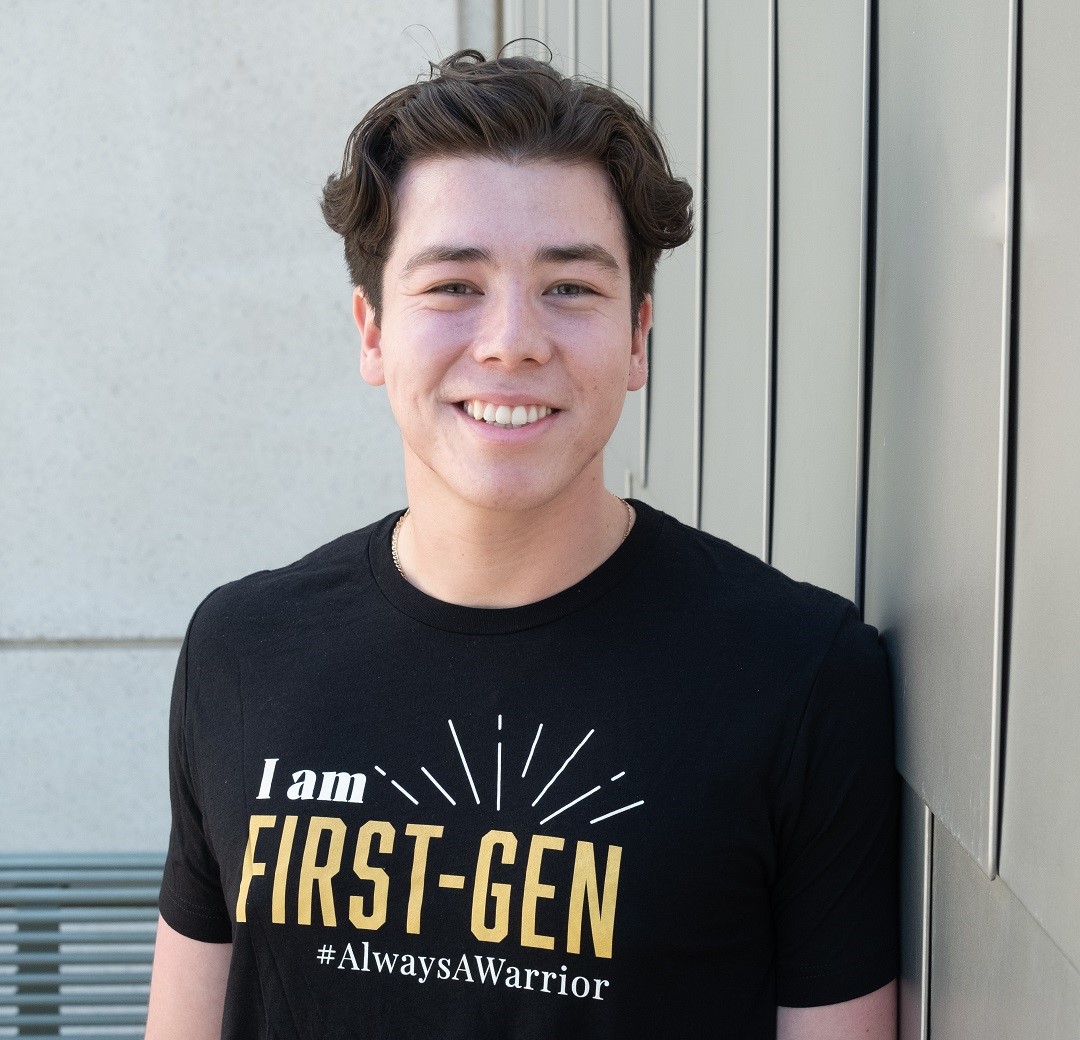
Cristian Silva-Toro grew up surrounded by drug use in his neighborhood and always wondered about the appeal and what made people want to use them. His parents were strict, he said, and successfully shielded him, his two younger brothers and his sister from using them.
The Stanislaus State junior psychology/criminal justice major with a sociology minor hopes to turn that fascination into a career.
A McNair Scholar, Silva-Toro is imagining where his interest might take him as he explores research options. He’s accustomed to swerving to find his path.
“My freshman year I wanted to go into forensic psychology,” Silva-Toro said. “I was in criminal justice, and you had to declare a concentration. My concentration was forensic science. I was like, ‘Why am I having to take all these science classes? I don’t want to take all these science classes.’
“Psychology is such a specific discipline as opposed to forensic science. I switched to corrections. There were no science classes to take. I want to work with people.”
To that end, he spent the spring semester as a Maddy Institute Legislative Scholar Intern through the office of U.S. Representative Josh Harder. He worked in the Stanislaus County Probation Department, where he was assigned to the Adult Supervision Unit.
“My time with the office of Josh Harder was great,” Silva-Toro said. “It was filled with hard- working people who were motivated by genuine interest to be the eyes and ears of the individuals in the area. My time there was very educational; it opened my eyes to common struggles people endure in our district. Through this experience, I was able to learn that I want a career where I can help people directly, one on one. My goal going forward is to pursue social work and public health, a great potion for working on the frontlines and helping those vulnerable. “
Silva-Toro had previously considered working in public advocacy and contributing to drug-related policy.
Growing up in Modesto’s lower-income neighborhoods, the first-of-four children of immigrants, Silva-Toro saw drug use up close.
“They always fascinated me, why people take them, why people get addicted to them, why we automatically think something bad when we hear drugs,” Silva-Toro said. “That's always interested me. Even as a little kid. I remember watching ‘Drugs, Inc.,’ a documentary series about different substances. I always had that interest. I’ve always been interested in psychology, too.”
Despite his exposure to illegal substances Silva-Toro said he was never tempted.
“I think I was in a very privileged spot, because my parents always encouraged education,” Silva-Toro said. “They sheltered me from those negative influences. I always saw education as something I wanted to do, so by fulfilling my dream, I was fulfilling their dream. They sacrificed so much, leaving their country, leaving everything they had, starting a whole new life, and it would almost be like treason or backstabbing them, because they sacrificed so much.”
Not only were his parents, Isidro and Claudia, strict and kept a close eye on him and his siblings, they made sure he got the best education he could. He was accepted into Modesto High School’s International Baccalaureate program.
“I was fairly successful,” he said. “I did everything I had to do. I just don’t think it was a good fit for me. If I had to do it again, I wouldn’t. It's too much stress. I was doing sports and all my schoolwork. On top of that, you have to do community service, and it’s hundreds of hours.”
If the demands confined his freedom as a high school student, the lessons seemed to take.
Silva-Toro's employment is very much community service oriented. He works at La Loma Junior High School in Modesto, where he is an AVID tutor, serves as a translator for a Spanish-speaking student in a history class and is helping second-language students prepare for the English proficiency test.
“I had to pass that test, too,” Silva-Toro said.
He spoke Spanish until he began elementary school but quickly learned English. With his parents’ encouragement and his respect for them, Silva-Toro became a gifted student. That doesn’t mean the first-generation college student transitioned to the University with ease.
“I didn’t even know what office hours were,” Silva-Toro said. “I remember going into Dr. Wood’s classroom and asking if I could talk to him. He said, ‘Do you have an appointment with me?’ I told him no, and he said he could give me five minutes. I told him I wanted to be a forensic psychologist, that I wanted to work with criminals and try to understand their psychology.
“I remember him telling me I had to get a Ph.D. He seemed super intimidating and said I had to be really good at psychology. It intimidated me a lot, but it turns out he’s really nice. I was a little freshman.”
The plan to understand criminal minds shifted to advocating for policy change.
The idea of him getting an advanced degree is more of a reality, and the McNair Scholars Program is designed to help.
Silva-Toro had previously been accepted for the program, but he had to step away because of a loss in the family and too much going on in his life. He reapplied and is a member of the new cohort that started in January.
“It’s the individualized attention that I think is really important,” he said. “The McNair program is small enough that we can receive the attention we need. It has an assortment of benefits: financial aid, help with your research interests, help with your applications for grad school, help with your GRE testing. You get to go on field trips to potential schools and you’re encouraged to do the best you can. Having these like-minded individuals in the program, I feel like you’re doing that.”
Which is what his parents hoped, and he’s been doing, since he started school.
